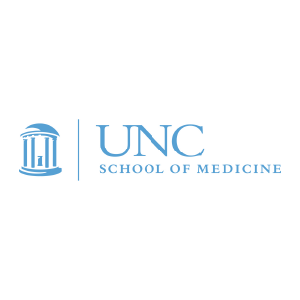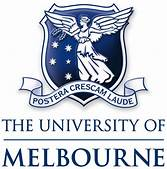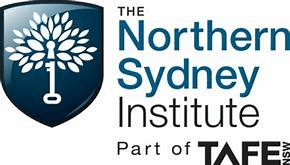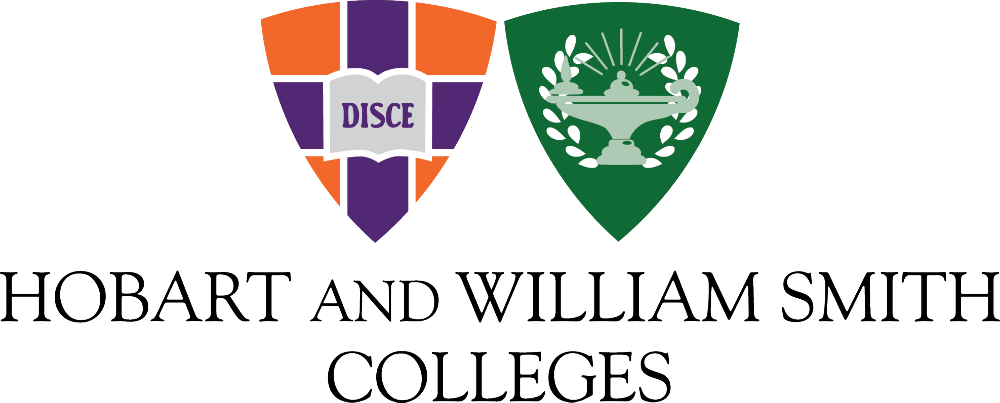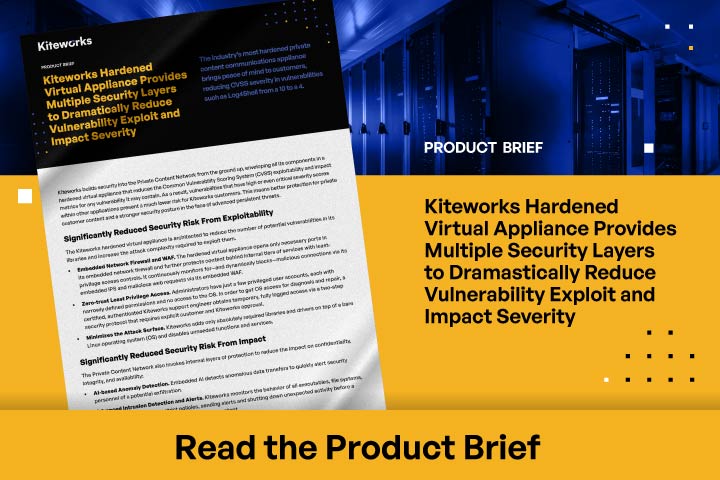
Secure File Sharing for Employment Background Checks
Higher education institutions often need to share sensitive background check information for potential employees. Insecure file sharing can lead to data breaches and noncompliance with privacy regulations. Kiteworks provides a secure file sharing platform that allows institutions to share sensitive background check information securely. The platform’s encryption, access controls, and audit logging features ensure data integrity, confidentiality, and compliance with privacy regulations.
Secure File Sharing for Student PII
Higher education institutions often need to share sensitive personally identifiable information (PII) such as academic records, medical information, etc. Insecure file sharing can lead to data breaches and noncompliance with privacy regulations. Kiteworks provides a secure file sharing platform that allows institutions to share sensitive PII securely. The platform’s encryption, access controls, and audit logging features ensure data integrity, confidentiality, and compliance with privacy regulations such as FERPA and HIPAA.
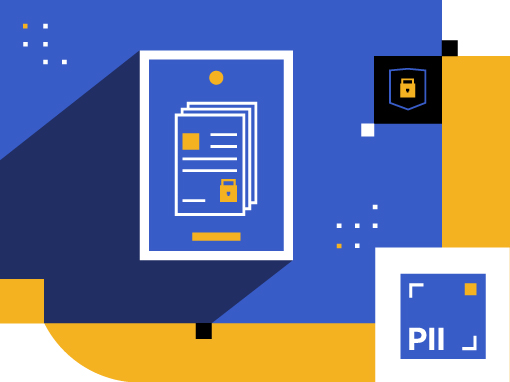
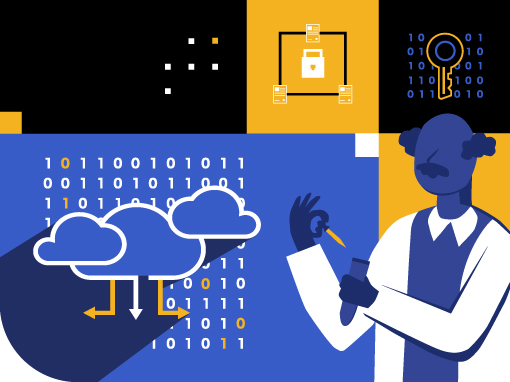
Secure File Sharing for Research Collaboration
Higher education institutions often need to share sensitive research data for collaborative projects. Insecure file sharing can lead to data breaches and loss of intellectual property. Kiteworks provides a secure file sharing platform that allows institutions to share sensitive research data securely. The platform’s encryption, access controls, and version control features ensure data integrity, confidentiality, and protection of intellectual property.
Secure Communication for Sharing of Sensitive National State Secrets
Government agencies often need to share sensitive national state secrets. Insecure communication can lead to data breaches and threats to national security. Kiteworks provides a secure communication platform that allows government agencies to share sensitive national state secrets securely. The platform’s encryption, access controls, and audit logging features ensure data integrity, confidentiality, and compliance with national security regulations.
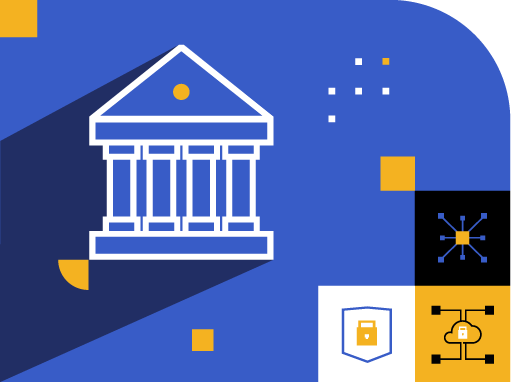
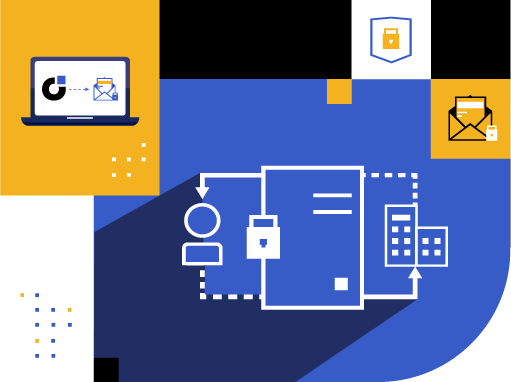
Secure Email for Faculty and Staff Communication
Higher education institutions often need to communicate sensitive information via email with faculty and staff. Traditional email can be insecure and lead to data breaches. Kiteworks provides secure email communication, ensuring that all communication is encrypted and only accessible to the intended recipient. Additionally, when faculty and staff use Kiteworks, phishing emails are no longer a threat or issue.
Secure File Sharing for Research Data
Higher education institutions often need to share sensitive research data with faculty, students, or external partners. Insecure file sharing can lead to data breaches. Kiteworks provides a secure file sharing platform that allows institutions to share sensitive research data securely, ensuring data integrity and confidentiality.
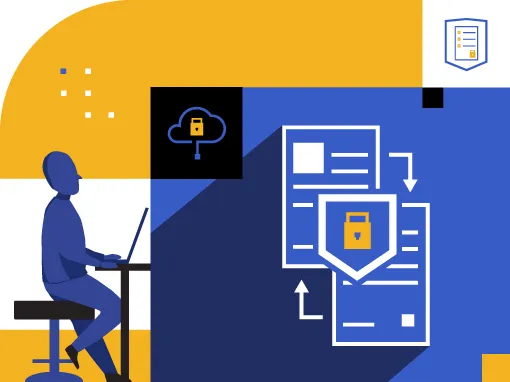
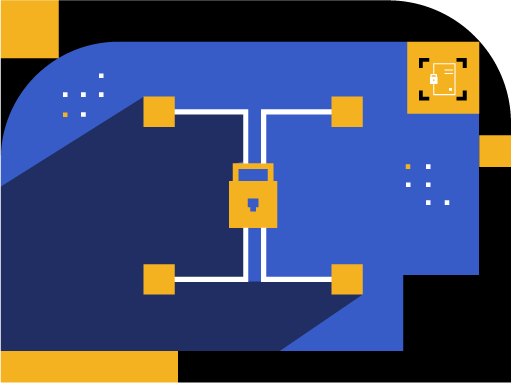
Managed File Transfer for Student Records
Higher education institutions often need to transfer large volumes of student records between systems or to external partners. Insecure file transfers can lead to data breaches. Kiteworks provides a managed file transfer solution that enables institutions to securely transfer large volumes of student records, ensuring data integrity and confidentiality.
Secure Web Forms for Student Enrollment
Higher education institutions often need to collect sensitive information from students during the enrollment process. Traditional web forms can be insecure and lead to data breaches. Kiteworks provides secure web forms that ensure personal information protection. The platform’s encryption and secure data storage capabilities ensure that student data is collected securely and stored safely.


Secure Email for Student Communication
Higher education institutions often need to communicate sensitive information via email with students. Traditional email can be insecure and lead to data breaches. Kiteworks provides secure email communication, ensuring that all communication is encrypted and only accessible to the intended recipient. In addition, when email is sent and received via Kiteworks, the threat of phishing attacks is eliminated.
Secure File Sharing for Course Materials
Higher education institutions often need to share sensitive course materials with students. Insecure file sharing can lead to data breaches. Kiteworks provides a secure file sharing platform that allows institutions to share sensitive course materials securely, ensuring data integrity and confidentiality.
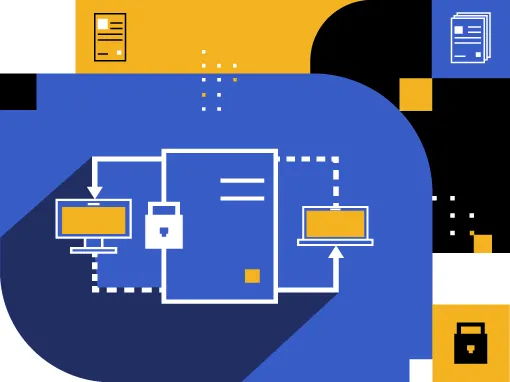

Managed File Transfer for Faculty Records
Higher education institutions often need to transfer large volumes of faculty records between systems or to external partners. Insecure file transfers can lead to data breaches. Kiteworks provides a managed file transfer solution that enables institutions to securely transfer large volumes of faculty records, ensuring data integrity and confidentiality.
Secure Web Forms for Financial Aid Applications
Higher education institutions often need to collect sensitive information from students during the financial aid application process. Traditional web forms can be insecure and lead to data breaches. Kiteworks provides secure web forms that ensure personal information protection. The platform’s encryption and secure data storage capabilities ensure that student data is collected securely and stored safely.


Secure File Sharing for Institutional Reports
Higher education institutions often need to share sensitive institutional reports with internal or external stakeholders. Insecure file sharing can lead to data breaches. Kiteworks provides a secure file sharing platform that allows institutions to share sensitive institutional reports securely, ensuring data integrity and confidentiality.
Managed File Transfer for Library Data
Higher education institutions often need to transfer large volumes of library data between systems or to external partners. Insecure file transfers can lead to data breaches. Kiteworks provides a managed file transfer solution that enables institutions to securely transfer large volumes of library data, ensuring data integrity and confidentiality.


Secure Web Forms for Alumni Donations
Higher education institutions often need to collect sensitive information from alumni during the donation process. Traditional web forms can be insecure and lead to data breaches. Kiteworks provides secure web forms that ensure personal information protection. The platform’s encryption and secure data storage capabilities ensure that alumni data is collected securely and stored safely.
Secure File Sharing for Admissions Documents
Higher education institutions often need to share sensitive admissions documents with prospective students. Insecure file sharing can lead to data breaches. Kiteworks provides a secure file sharing platform that allows institutions to share sensitive admissions documents securely, ensuring data integrity and confidentiality.
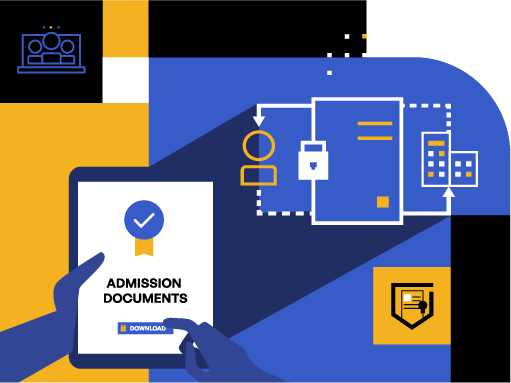
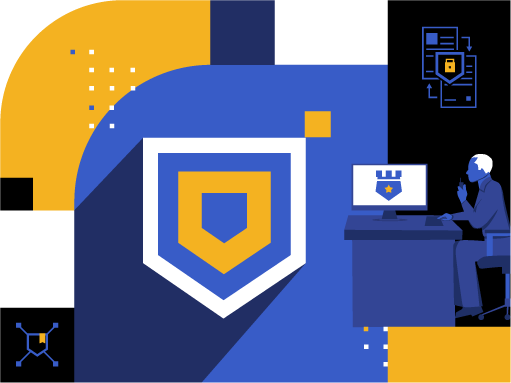
Managed File Transfer for Campus Security Data
Higher education institutions often need to transfer large volumes of campus security data between systems or to external partners. Insecure file transfers can lead to data breaches. Kiteworks provides a managed file transfer solution that enables institutions to securely transfer large volumes of campus security data, ensuring data integrity and confidentiality.
Frequently Asked Questions
The Family Educational Rights and Privacy Act (FERPA) is a federal law in the United States that protects the privacy of students’ education records. FERPA applies to all educational institutions that receive federal funding, including K-12 schools, colleges, and universities. The law gives students and their parents certain rights with respect to their education records, including the right to access, review, and request corrections to those records. FERPA also regulates the disclosure of students’ education records and requires educational institutions to obtain written consent before releasing such records to third parties, except in certain limited circumstances.
Colleges and universities store a variety of sensitive information, like student records (which includes personally identifiable information like names, addresses, and Social Security numbers), financial information (such as banking, loan, and credit card information), research data (which may include confidential or proprietary information), personally identifiable and protected health information (PII/PHI), as well as criminal justice information (CJI). This information is valuable to attackers because it can be sold on the dark web or used to commit blackmail or identity theft.
Colleges and universities use a variety of security measures to protect sensitive information from cyberattacks, including firewalls, intrusion detection and prevention systems (IDS), identity access management (IAM), granular access controls, and encryption. They also implement security awareness training for staff and students and regularly update their software and systems to patch any vulnerabilities.
Students and staff should be vigilant about their online activity and take steps to protect their personally identifiable and protected health (PII/PHI) information. This includes using strong passwords, avoiding public Wi-Fi networks, and being cautious about clicking on links or downloading attachments from unknown sources. They should also ensure that their devices, like smartphones and laptops, are up to date with the latest security patches and antivirus software.
In the event of a data breach, colleges and universities should take immediate steps to contain the breach and mitigate any damage. This should include executing an incident response plan, notifying affected individuals and law enforcement, conducting a thorough investigation to determine the scope of the breach, and implementing additional security measures to prevent future breaches.
Colleges and universities can balance the need for security with the free flow of information by implementing security measures that are effective without being overly restrictive. This may include providing secure file sharing or secure file transfer channels for the exchange of sensitive information, using access controls to limit who has access to certain data, and implementing policies and procedures that promote responsible information sharing. It is also important to provide security awareness training for faculty, staff, and students to educate and reinforce school security policies and procedures.
FEATURED RESOURCES
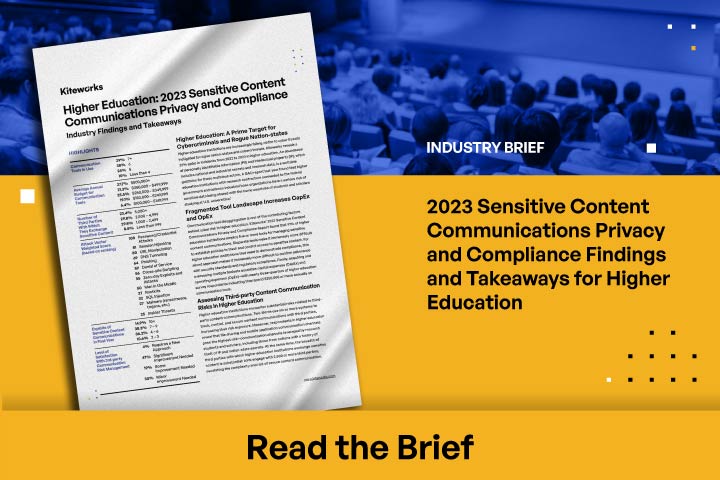
Higher Education: 2023 Sensitive Content Communications Privacy and Compliance
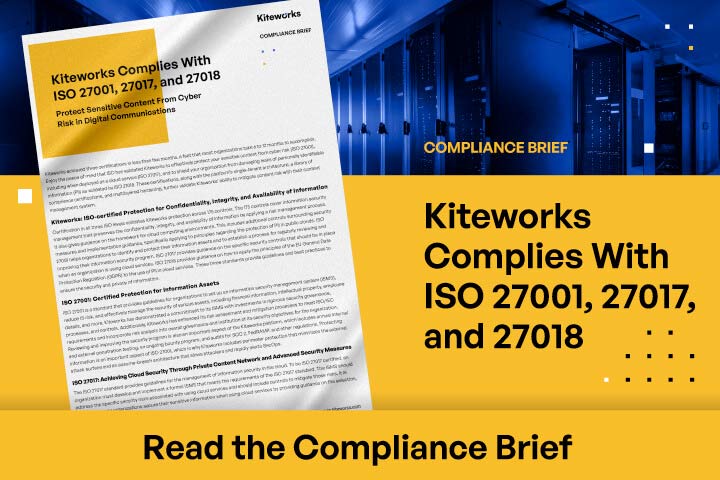
Kiteworks Complies With ISO 27001, 27017, and 27018
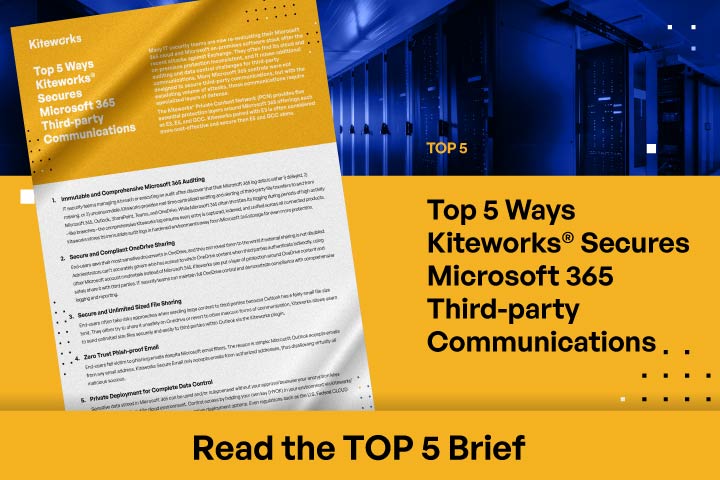
Top 5 Ways Kiteworks Secures Microsoft 365 Third-party Communications
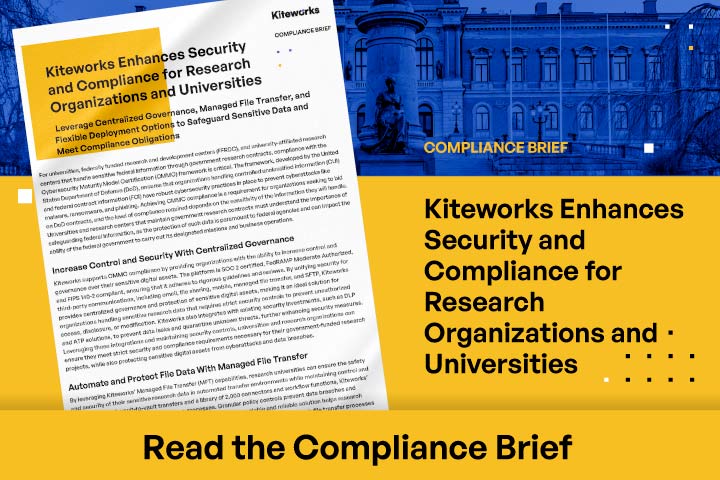
Kiteworks Enhances Security and Compliance for Research Organizations and Universities
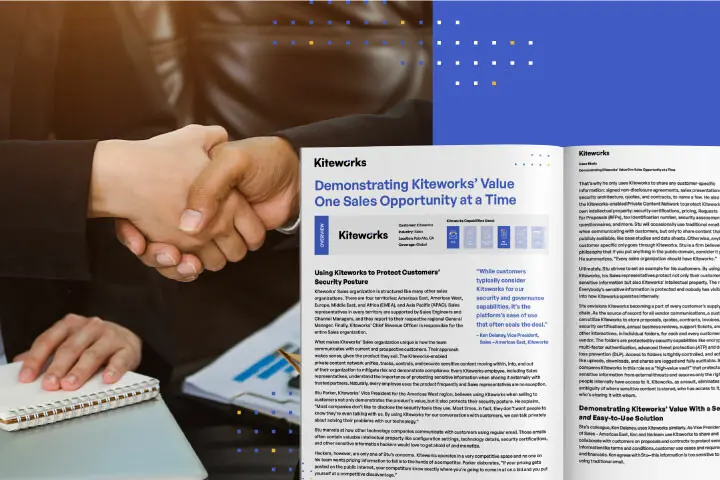
Demonstrating Kiteworks’ Value One Sales Opportunity at a Time
IT, SECURITY, PRIVACY, AND COMPLIANCE LEADERS AT THOUSANDS OF THE WORLD’S LEADING ENTERPRISES AND GOVERNMENT AGENCIES TRUST KITEWORKS
